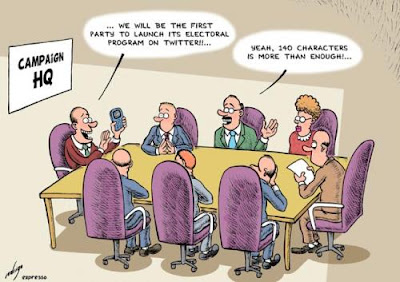The PL’s recently founded think-tank, IDEAT, has just published its first quarterly online journal – Ideat Journal. We might tend to judge a journal by whether or not we agree with its content – which would not be the right way to go about it.
I’ve read through some of the articles and on the whole J’accuse’s verdict is that here is a job well done. This first edition is themed “The Road to Progress” and manages to both critique and expand on the notion of “progressivism” as promoted by Joseph Muscat. Contributors such as Andrew Sciberras do not shy away from criticising the early contradictory signs between message and facts being sent out by the PL:
Incidentally, however,Muscat’s reluctance to go the whole hog on divorce and offer instead a free-vote on the contentious issue has sparked further debate, particularly on a future Labour government’s willingness to adopt this civil right. Whilst one can understand that on moral issues one should not be forced to vote against his or her own personal ethic, it is our firm belief that the current position should be reconsidered, especially in light of the commendable declaration by the Labour leader that the majority must never decide for the minority (although it is highly doubtful whether those in favour of divorce are actually in the minority). After all, Labour did not shy away from decriminalising homosexuality and giving women voting rights even though these measures were highly controversial in their day and age. (Grasping the Progressive Ideal, Sciberras)
What we find throughout IDEAT’s first journal is a willingness to engage and criticise away from the the deceptive spotlight of PR-politics and mud-slinging. It comes as a pleasant surprise that is a far call from the bumbling PL public relations attempts. The PL has so far faltered in the attempt to project a factual impression of being able to shoulder the wave of change that it has hinted in many words but little programmes or facts. This job well done could be a first step to bridging the gap.
In his introduction Aaron Farrugia (IDEAT Chairman) shows that the messages from the blogging world have finally hit home somewhere. We get a first signal of a realisation by a party organ that the new communication tools are not only useful for the marketing propaganda but also to engage in exchanges:
We are now embarking on a new way in how we communicate and reach the general public. Conferences and seminars are a traditional method of maintaining such contact, but new technological tools offer many new options for people to get information and constant updates from our end. (…) Regardless of their gender, educational background and socio-economic status, people, especially the young, don’t bother with newspapers or political periodicals. Sometimes they regard them as part of the political dead wood. It is a fact of life that today, most people get their news off the internet.
As a relatively new political foundation we would like to communicate and engage with You and so we are today launching a new concept in local politics – an online political magazine which will be published quarterly and which can be downloadable for free from our website www.ideat.org.mt
IDEAT are to be commended for this venture into the world of open ideas. J’accuse expects to see an IDEAT online wiki/forum in the near future. In the meantime there might no longer be an excuse for us not to engage on purely political terms.
We expect (yes, we are quite big headed on this count) to see the journal transform itself into (at least) a monthly edition – is one magazine with 5 (local) articles every four months all the progressive movement can come up with? Surely there is space for more debate?
Secondly – a little bad habit I pick up from thesis review days – when quoting liberally from an article it would be good to acknowledge the source – otherwise you risk discrediting the content quite quickly. In Aaron Farrugia’s case there was some “borrowing” from David Miliband’s speech at Demos on the 23rd February of 2010: “Powerful people. why progressive ends need progressive means“. There’s no harm in referring to other movements who have “been there, done that” but acknowledging the source is a definite must.
More frequent, more content but otherwise a job well done. Let’s hope others will follow suit.

